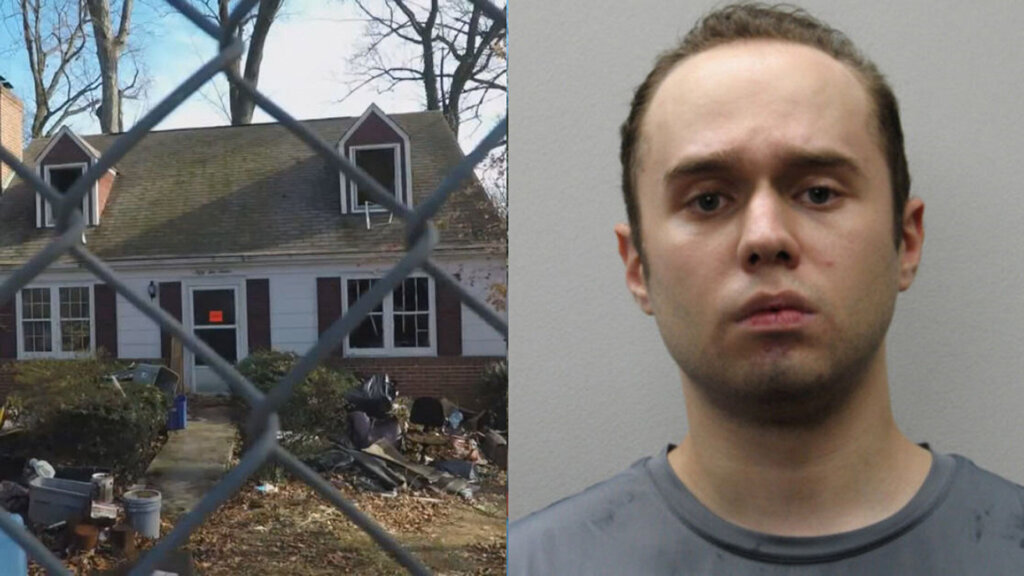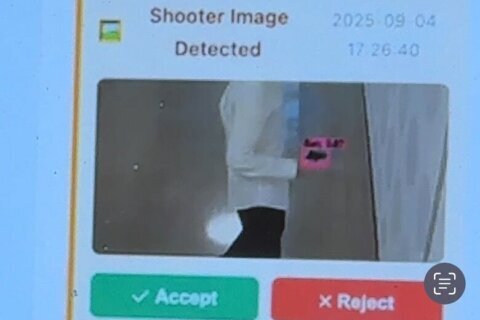A Bethesda, Maryland, stock trader who was convicted of involuntary manslaughter in the fiery death of a man helping him dig tunnels beneath his home has been released from prison early.
Daniel Beckwitt’s lawyer, Robert C. Bonsib, confirmed to WTOP that his client was released from prison on Friday. Beckwitt’s release was first reported by WTOP’s news partners at NBC Washington.
Beckwitt’s original nine-year sentenced was reduced in March, which made him eligible for parole.
Beckwitt had originally been sentenced in 2019 to nine years in prison after a jury convicted him of second-degree “depraved heart” murder and involuntary manslaughter for the death of 21-year-old Askia Khafra, who had been hired to dig tunnels for a nuclear bunker beneath his home in Bethesda.

Khafra was “burned beyond recognition” in a fire at Beckwitt’s home in September 2017, after a defective outlet caught fire, killing him. Firefighters found Khafra’s naked, charred body in the basement of the trash-filled house.
Prosecutors said the extreme hoarding conditions in the home prevented him from escaping.
At trial, Montgomery County prosecutor Marybeth Ayres said Beckwitt sacrificed safety for secrecy and created “death trap” conditions that prevented Khafra from escaping the house.
His lawyer, Bonsib, told jurors the fire was an accident, not a crime. He said Beckwitt screamed for help from neighbors after the fire broke out and risked his own safety in a failed attempt to rescue his friend.
Beckwitt had met Khafra online and had invested money in a company Khafra was trying to launch, as he helped Beckwitt dig the network of tunnels. A prosecutor described Beckwitt as a skilled computer hacker who had a paranoid fixation on a possible nuclear attack by North Korea.
According to prosecutors, Beckwitt went to elaborate lengths to keep the project a secret, and tried to trick Khafra into thinking they were digging the tunnels in Virginia instead of Maryland by having him don “blackout glasses” before taking him on a long drive to confuse his sense of location. Beckwitt also used internet “spoofing” to make it appear they were digging in Virginia, according to prosecutors.
Khafra worked in the tunnels for days at a time, eating and sleeping there, and urinating and defecating into a bucket that Beckwitt would lower down to him. The tunnels had lights, an air circulation system and a heater.
A hole in Beckwitt’s concrete basement floor led to a shaft that dropped down 20 feet (6 meters) into tunnels that branched out roughly 200 feet (60 meters) in length. Investigators concluded that the blaze was ignited by a defective electrical outlet in the basement.
The Court of Special Appeals ruled in January 2021 that the evidence had been sufficient to support the conviction for involuntary manslaughter, but a three-judge panel overturned Beckwitt’s murder conviction in January 2022.
In March 2022, Montgomery County Circuit Court Judge Margaret Schweitzer reduced Beckwitt’s sentence, resentencing him to 10 years in prison but suspending five of those years.
The Judge said that Beckwitt was already statutorily eligible for parole because he had served more than a quarter of his sentence. She also sentenced him to five years of supervised probation after his release and ordered him to perform 250 hours of community service.
The Associated Press contributed to this report.








